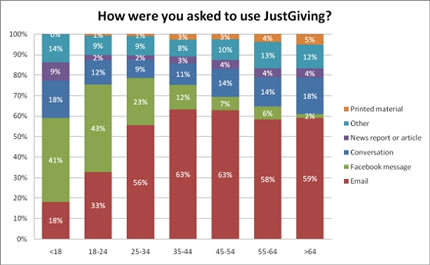Just how useful are smartphone apps – research results
Following on from my blog a couple of weeks ago, I’ve received lots of useful feedback and thoughts on smartphone apps and have some results to share from the quick survey.
Firstly, thanks to the survey respondents. We received enough to generate some interesting food for thought but I wouldn’t suggest we have statistical validity here so please don’t think you should re-work your strategies on the back of the findings.
Advertisement
Secondly, the overwhelming majority of respondents were already aware of smartphone apps which means their opinions are those of ‘the converted’ as my Market Research lecturer once said. This means that we aren’t able to judge the pervasiveness of these apps but it does give us a clearer view of how relevant they might be in a work context from people who are open to using them.
Findings and reflections
The majority of respondents were iphone users (as opposed to Blackberry, Nokia, HTC Android etc) which probably reflects the recent sales success of the iphone and apps downloaded from iTunes, compared to Apple’s competitors.
75% of respondents currently use apps for fun and 25% for socialising. 50% use them for work. 100% said they would use apps to help them directly with their work. This suggests there is potential for creating more useful, work-oriented apps and that there may be some overlap between personal and work app usage – managing contacts for example. One quick search revealed over 4,400 business apps available on the iTunes store (and I’m sure there are more!). Whilst the majority of these are for accounting, time management, contact and document management (personal use too), there appears to be an increasing number of apps catering for ‘softer management skills’ such as coaching, training, NLP etc.
Our survey responses also suggested there is demand for ‘softer’ skills to be catered for. The work uses they preferred were:
- Creating communications campaigns
- Creating fundraising campaigns
- Creating marketing campaigns
- Tracking and measuring activity
Looking specifically at Fundraising, it will be interesting to see how well JustGiving’s new app is received to assess whether this demand is latent or real. This enables individuals to update their pages, send out fundraising messages and track their fundraising progress. Personally, I would love to see it take off and help more individuals raise money for charity but I’m really keen for apps like this to be accepted broadly and not just by techno-experts.
So what does all this mean?
Well, let’s not draw any firm conclusions but it appears there is a demand for more ‘useful’ work-oriented apps and indeed for those which bridge the gap between work and personal lives like JustGiving’s app (it’s work for the charity and personal for the user?). Given the number of apps now available, perhaps the key is not for yet more apps but for highly targeted options which meet a specific need like those outlined in the survey.
Lastly, could charities and small businesses align or integrate their apps with others to a) reach a wider audience and b) acknowledge the blurring between work and personal life decisions for many users. I’m thinking about philanthropy elements embedded into investment apps, crowd-funding asks embedded into community gaming apps shared by many users or how about campaigning messages associated with news update apps?
I’m sure if we can be creative, it won’t be long before “there’s an app for that”.





